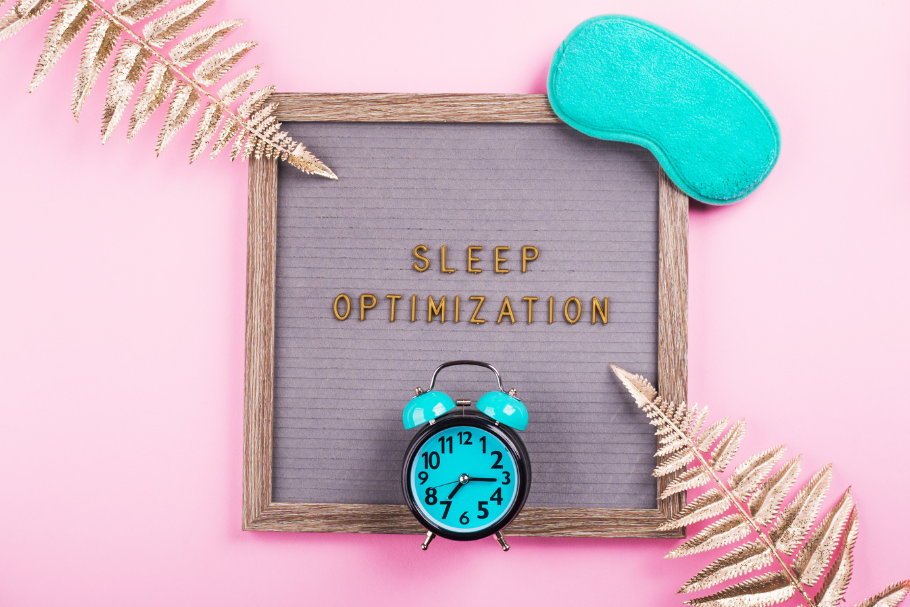Sleep Hygiene: 10 Habits and Practices for Optimal Sleep

Sleep Hygiene 10 Habits and Practices for Optimal Sleep
Introduction
Getting a good night’s sleep is essential for our overall well-being and functioning. Sleep hygiene refers to the habits and practices that contribute to quality sleep. By incorporating these habits into our daily routine, we can optimize our sleep patterns and improve the quality of our rest.
In this blog post, we will explore ten effective sleep hygiene practices that can help you achieve optimal sleep. From establishing a consistent sleep schedule to creating a sleep-friendly environment, these habits are key to promoting restful nights and waking up refreshed.
Stick to a Consistent Sleep Schedule
Maintain a regular sleep schedule by going to bed and waking up at the same time every day, even on weekends. This consistency helps regulate your body’s internal clock, making it easier to fall asleep and wake up naturally. Establish a bedtime routine that allows you to wind down, signaling to your body that it’s time to sleep.
Create a Sleep-Friendly Environment
Design your bedroom as a sleep sanctuary. Keep your room quiet, cool, and dark. Use blackout curtains or an eye mask to block out light, earplugs or a white noise machine to reduce noise disruptions and a comfortable mattress and pillows that support your preferred sleep position.
Limit Daytime Napping
While short power naps can be refreshing, excessive daytime napping can interfere with your nighttime sleep. Limit naps to 20-30 minutes and avoid napping too close to your bedtime.
Practice Relaxation Techniques
Engage in relaxation techniques before bed to calm your mind and prepare for sleep. Deep breathing exercises, meditation, or gentle stretching can help you unwind and reduce stress. Find a routine that works for you and dedicate a few minutes each night to these practices.
Limit Stimulants
Avoid consuming stimulants close to bedtime. Caffeine, nicotine, and certain medications can interfere with your ability to fall asleep. Limit your intake of caffeinated beverages, such as coffee and tea, in the afternoon and evening.
Create a Digital Detox
The blue light emitted by electronic devices can disrupt your sleep-wake cycle. Minimize screen time before bed and avoid using electronic devices in the bedroom. Instead, engage in activities that promote relaxation, such as reading a book or listening to calming music.
Establish a Pre-Sleep Routine
Create a pre-sleep routine to signal to your body that it’s time to wind down. This can include activities such as taking a warm bath, practicing mindfulness, or listening to soothing music. Find activities that help you relax and incorporate them into your nightly routine.
Avoid Heavy Meals and Fluid Intake Before Bed
Eating heavy meals close to bedtime can cause discomfort and disrupt sleep. Opt for lighter, easily digestible meals in the evening. Additionally, limit your fluid intake before bed to avoid disruptions from frequent trips to the bathroom.
Keep a Comfortable Temperature
Maintain a comfortable temperature in your bedroom. A cool room with adequate ventilation promotes better sleep. Experiment with different bedding materials and clothing to find what keeps you comfortable throughout the night.
Manage Stress and Worry
Stress and worry can interfere with your ability to fall asleep. Prioritize stress management techniques, such as journaling, talking to a trusted friend or therapist, or engaging in relaxation exercises, to calm your mind and reduce anxiety before bed.
Conclusion
Optimizing sleep hygiene through the adoption of these ten habits and practices can have a significant impact on the quality of your sleep. From establishing a consistent sleep schedule to creating a soothing environment and incorporating relaxation techniques, each habit contributes to a restful night’s sleep.
Remember to personalize these practices to suit your individual needs and preferences. By prioritizing sleep hygiene, you can enhance your overall well-being, increase daytime productivity, and wake up feeling refreshed and energized.
For More Related Articles Browse Our Website Blogster.pk
For social Connection You can also Visit and follow our Social media Platforms
Facebook , Instagram, Linkedin, Pinterest, Quora, Twitter, Youtube.







